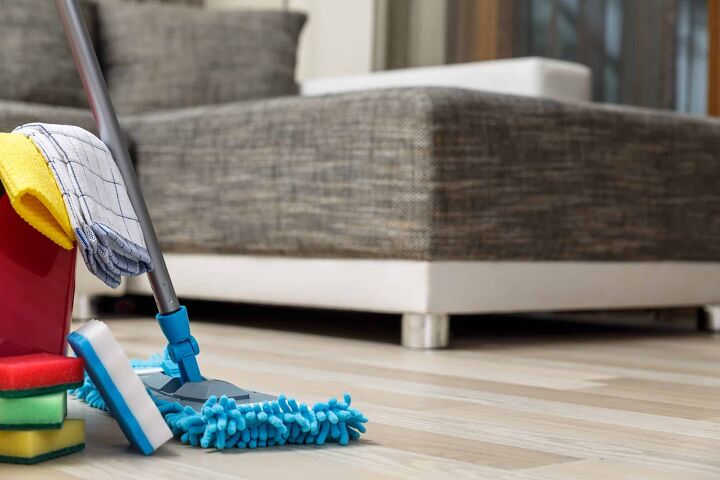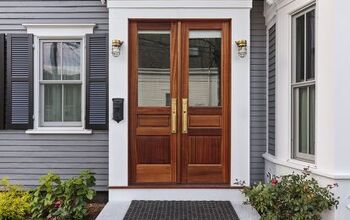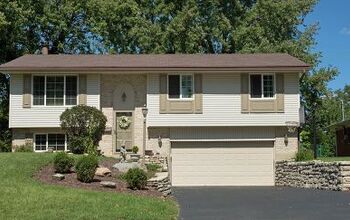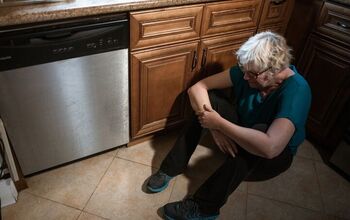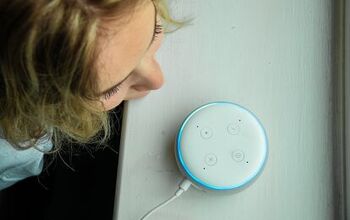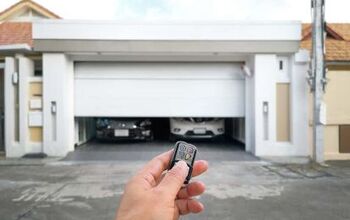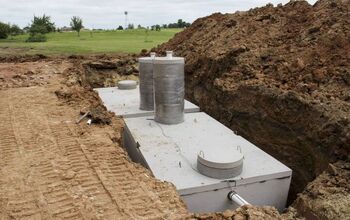Can A Landlord Tell You How Clean To Keep Your House?

Today over 43 million people rent their homes in the USA. Renting is especially convenient for those who find themselves moving often. However, there’s a vast gray area when it comes to landlord-tenant relationships: Can your landlord tell you how clean to keep your home?
Because it is their private property, a landlord can tell you how to properly clean the house you are staying in if it has to do with potential health hazards or provision violations in your lease. This may include mold growth, risk of injury, obstructed emergency exits, or any threats of injury.
Your landlord very well has the right to tell you to clean up. What it all comes down to is that legally, they own the space you are renting. All the stipulations are listed in your contract. Make sure you read through each section before signing!
You need to know your rights, as well as your landlord’s rights. Can they punish you for not cleaning? Can they evict you? How do you know what they categorize as a mess? This article will tell you the basics of what you need to know.
Do You Need a Maid Service?
Get free, zero-commitment quotes from pro contractors near you.

Can A Landlord Tell You To Keep Your House Clean?
What the situation ultimately comes down to is: You are renting this place from them. Yes, you are paying to live there; however, your messes can affect their ability to rent other units.
After all, no one wants to live next door to someone who is attracting mice. Not to mention, they are stuck with the cost of damages that extend beyond the amount of your security deposit.
What Does A Landlord Consider Messy?
All their stipulations will be in their contract. However, there are some commonsense answers to this question as well.
If in their lease, they didn’t mention mold—mold is toxic to your health and the health of others. The fungus also threatens the structures of the building. Therefore, they can tell you to clean up the general area. Then, it’s their job to come and remove the mold or hire someone to do so.
What Your Landlord Can Tell You To Clean
- Clutter
- Garbage
- Anything causing mold
- Anything causing unpleasant smells
- Shower tile and grout
- Floors
- Carpets
- Pet messes
- Anything causing mildew
- Dirt on the walls
- Hoarding piles
- Outside areas viewable to the public
- Outside areas that may be ruining the landscaping such as piles of metal, junk vehicles, etc.
As you can see, the list is quite extensive.
What Rights Does A Landlord Have Regarding Messes?
First, your landlord can stop by at any time during the day. However, if you are not home, they are not allowed to go into the house or apartment. You would need to sign a letter permitting them to enter your home while you aren’t there.
If your landlord happens upon a mess in your home, they can give you a timeframe to clean it up. They cannot clean it for you or touch your belongings. Usually, they will work with the tenant to figure out how long they need to clean.
Your landlord also cannot tell you how to organize your home. If they say, your house is messy because “There is too much furniture,”– Unless it’s a fire hazard, they cannot ask you to remove it.
Can You Get Evicted For Having A Messy Home?
They can indeed evict you for having a mess in your home. However, there are specific rules and boundaries regarding this situation or circumstance.
For example, if your lease says that you will receive three warnings to clean a mess to ‘satisfactory condition,’ they cannot evict you without giving you those three warnings.
Another example, if your lease says that you will be removed without notice, then legally, they don’t need to warn you.
What Does Satisfactory Condition Mean On Your Lease?
In your lease, it should also state what they mean by the term ‘satisfactory condition’? Since this term is relative, they need to explain their definition, so all parties are on the same page.
This very reason is why it’s so important to read your lease before signing. Also, to make sure you fully comprehend terms and conditions. Don’t be afraid to ask questions!
What Qualifies As A Mess?
If you have a pile of papers on your desk in your home office, that is none of their business. Unless, if that pile of papers is causing mildew or mold to pile up, that’s a problem.
Qualifying messes are equal to anything that is:
- Blocking the entrance for emergency personnel
- Blocking fire exits
- In the way of a heating element that can catch fire
- Causing mold or mildew build-up
- Dirt or grime
- Hazardous to one’s health
- Attracting rodents or insect issues
- Ruining the carpets, flooring, or walls
- Causing a bad smell (i.e., a litter box that hasn’t been cleaned for weeks)
- Affecting neighbors
- Blocking access to water supply in the event of a fire
Usually, your landlord will leave anything else alone that is not posing a threat.
Is My Landlord Harassing Me?
Now, there are those circumstances where you may wonder if your landlord is harassing you. Messy houses can be an extremely sensitive subject. It’s embarrassing to be told to clean your home.
However, how much is too much? Are they stepping over lines that they shouldn’t be? This is not a rare occurrence; it does happen. In this situation, it’s essential to know your rights. It’s also important to know the signs of harassment.
Tenant Rights
If your mess is not damaging the property, you should be fine. Also, if your mess is not breaking any provisions in your lease, then they have no right to force you to clean that mess.
You have the right to a copy of your lease, as well as clear expectations. For example, say you’re a backyard hobby mechanic. Maybe you have several tools and pieces lying around the yard. If your landlord did not stipulate that this wasn’t allowed, you can’t get in trouble for it.
However, if they mentioned no mess in the yard, you will need to ensure you keep your work area clean. But they still can’t ask you to move your car(s).
Signs Your Landlord Is Harassing You
There are several signs that you need to be aware of. While your landlord has rights too, they are not allowed to abuse that power. If your Landlord:
- Enters your home illegally.
- Shuts off your utilities even though you paid
- Cuts you off amenities included in your lease
- Refuses to make repairs or provide maintenance as promised
- Removes your possessions
- Raises your rent without 30 days’ notice
- Raises your rent several hundred dollars to force you to vacate
- Offers bribes
- Verbally or physically threatens you.
- Changes the locks on you
- Shows up daily for unexpected check-ins
These are signs of harassment, and you need to file a complaint immediately.
Although, if your utilities are cut off due to non-payment, this is not harassment. Or, if they enter your home due to an emergency, this is also acceptable. Each state will have its Landlord-Tenant laws. It’s up to you to research the rights each party has in your state.
What Your Landlord Shouldn’t Tell You To Do
Just like with your neighbors and roommates, you must establish boundaries with your landlord in order to live in peace.
While they may be able to tell you to clean up, there are some things that your landlord should never, under any circumstances, tell you to do. While rental laws may vary state by state, here are four things that your landlord should never as of you:
“Don’t think about having children while you live here.”
Familial status is protected under the Fair Housing Act, meaning your landlord cannot discriminate based on whether you have kids or want to have them in the future.
“Get out immediately.”
A landlord should not expect their tenants to move without appropriate warning. While rental termination laws vary based on where you live, a landlord is generally required to provide a notice to vacate anywhere from a couple weeks to a few months.
As far as evictions go, the timeframe may be much shorter – from a handful of days to a few weeks until you must be out.
“Can I store something in your garage?”
You have exclusive control over the premises that are outlined in your lease. Therefore, your landlord should not be allowed to use a section of your garage or storage space to place their personal items, unless it’s specifically described in the lease.
“Repair it yourself.”
It is illegal for landlords to tell their tenants to perform major repairs on a property, such as a porch, handrails, or steps.
Depending on your lease terms and tenant laws in your area, your landlord may also be required to handle minor repairs as well.
Do You Need a Maid Service?
Get free, zero-commitment quotes from pro contractors near you.

Related Questions
Can I Sue My Landlord for Stress?
This all depends on your state’s laws surrounding this matter. If your landlord purposely causes you grief with the intent to emotionally harm, yes.Although, you must prove that is what they’re doing. Document every encounter upon which you feel they’re harassing you.
How Do You Prove Your Landlord is Causing You Emotional Distress?
Provide documentation of any of the occurrences. If you decide to videotape or record audio, some states require you to disclose that to the person you’re recording. If not, it can be thrown out of court.Also, any witness testimonies or documentation of instances will help your case. In the event, your landlord becomes violent, call 911.
Keep Your Home Clean
Most landlords are quite easy to work with! They simply request you keep the area clean and abide by the lease terms. If you keep your home clean, abide by the terms, and pay your rent, you should have no issues.

Heather is a passionate writer who loves anything DIY. Growing up, she learned everything from home repairs to design, and wants to share her tips with you. When she's not writing, she's usually hiking or searching for her next DIY project.
More by Heather Robbins



